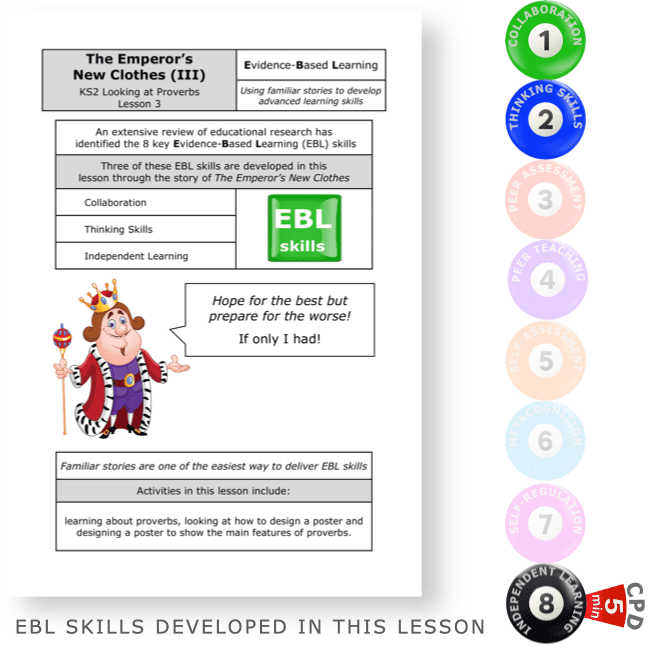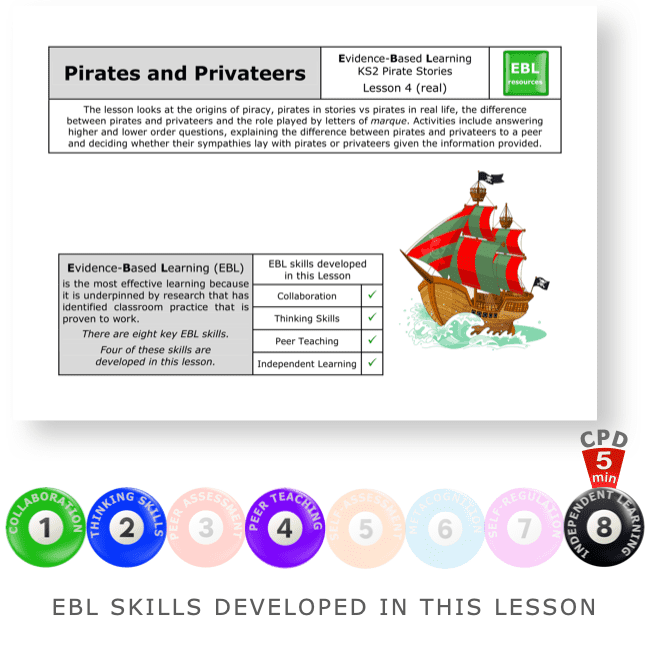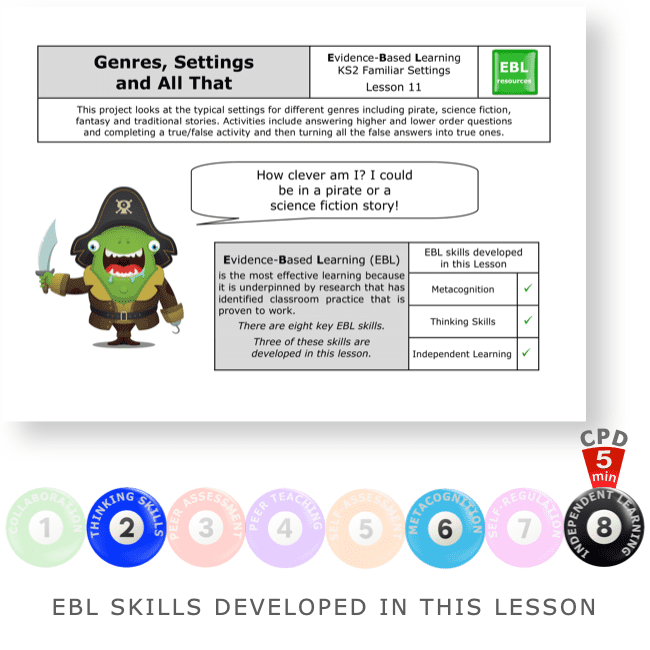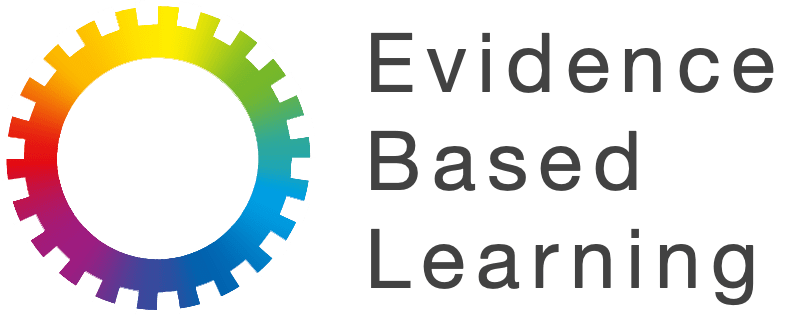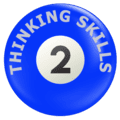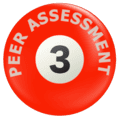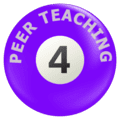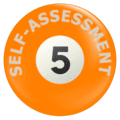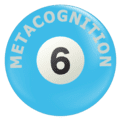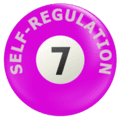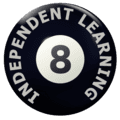
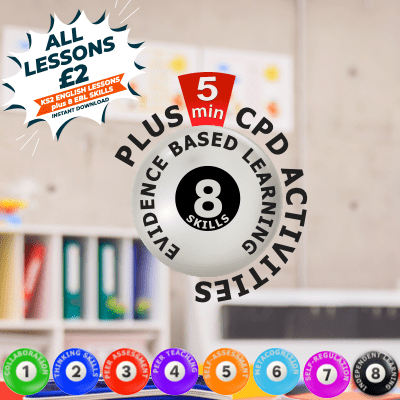
Evidence Based Learning (EBL)

Our lessons develop English skills and the eight EBL skills.


Over 200 lessons that develop English skills and the eight EBL skills proven, by research, to maximise learning.

Learn more about the research on the eight EBL Skills:
Or read a quick summary of the eight EBL Skills:
EBL Skill 1
Collaboration
Working collaboratively allows learners to share their ideas, learn from each other and build on each other’s strengths.
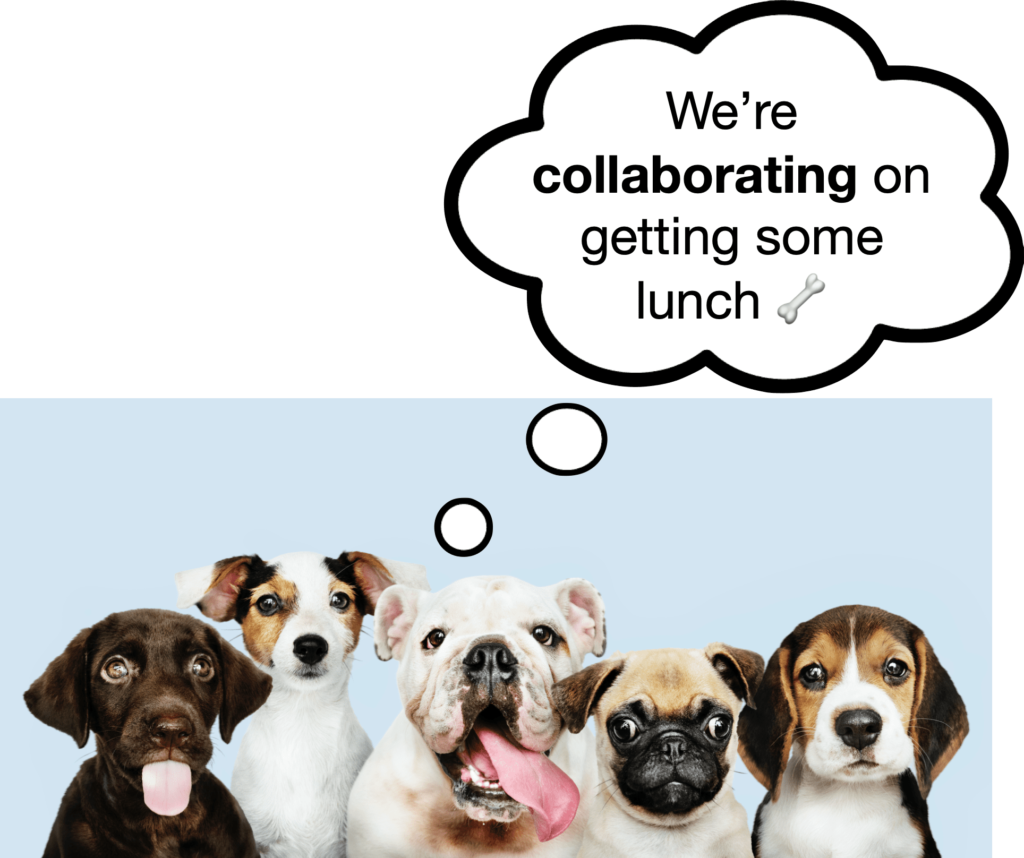
The longer that learners of different abilities participated in engaged groups, the more the knowledge of the subject improved for all learners.
Children Must Be Taught to Collaborate, Studies Say – Education Week – May 2017
These KS2 English lessons will develop Collaboration plus other EBL skills:

EBL Skill 2
Thinking Skills
Thinking Skills are essential if learners are to develop effective communication, analytical, and problem-solving skills.

Bloom’s Taxonomy provides clear and relevant pathways for learners to move through the orders of thinking, from basic remembering to more complex skills such as evaluating and creating.
Adapted from: What is Bloom’s taxonomy? – Feb 2023 – Dzemila Okanovic
These KS2 English lessons will develop Thinking Skills plus other EBL skills:
EBL Skill 3
Peer Assessment
Peer Assessment allows learners to learn from each other’s feedback and to develop their own assessment skills.
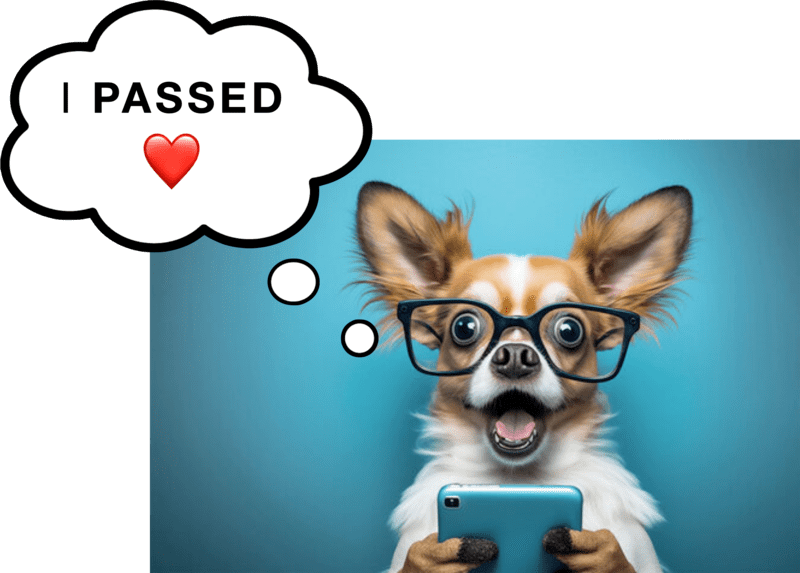
Giving feedback to peers about their work is often more beneficial than receiving feedback because it is more cognitively-engaging. It involves higher-order processes, such as application of criteria, diagnosing problems and suggesting solutions.
The development of student feedback literacy: Enabling uptake of feedback – Carless and Boud – Taylor and Francis – May 2018
These KS2 English lessons will develop Peer Assessment plus other EBL skills:
EBL Skill 4
Peer Teaching
Peer Teaching allows learners to learn from each other in an informal and supportive environment.
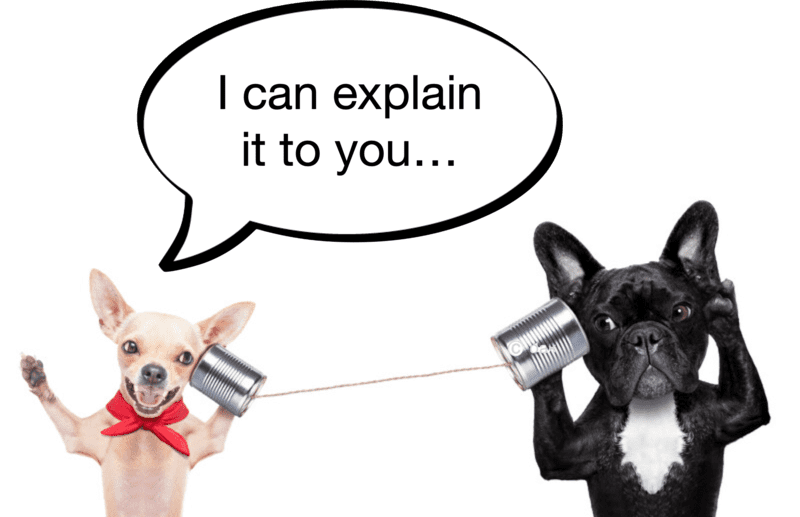
Evidence is accumulating that peer learning creates greater confidence and independence in learners, plus a deeper understanding and improved grades for both the peer teacher and their learner.
Benefits of peer to peer learning – Feb 2014
These KS2 English lessons will develop Peer Teaching plus other EBL skills:
EBL Skill 5
Self-Assessment
Self-Assessment allows learners to take ownership of their learning and to develop their metacognitive skills.

Self-assessment is a critical component of 21st century learning and has been shown to have a positive impact on learner motivation, engagement, and achievement.
S.K. Smith & J.M. Johnson – The impact of self-assessment on student motivation and achievement in the 21st century classroom – Journal of Educational Research – Vol 21 2017
These KS2 English lessons will develop Self-Assessment plus other EBL skills:
EBL Skill 6
Metacognition
Metacognition is the ability to think about your own thinking. It allows learners to monitor, control and alter their own learning processes.

Metacognition is thinking about your thinking. It refers to the processes used to plan, monitor, and assess one’s understanding and performance.
Metacognition – Center for teaching Vanderbilt University 2023
Metacognition plus other EBL skills are developed in these KS2 English lessons:
EBL Skill 7
Self-Regulation
Self-Regulation is the ability to control one’s own thinking and behaviour. It allows learners to stay on task, manage their time, and overcome obstacles.
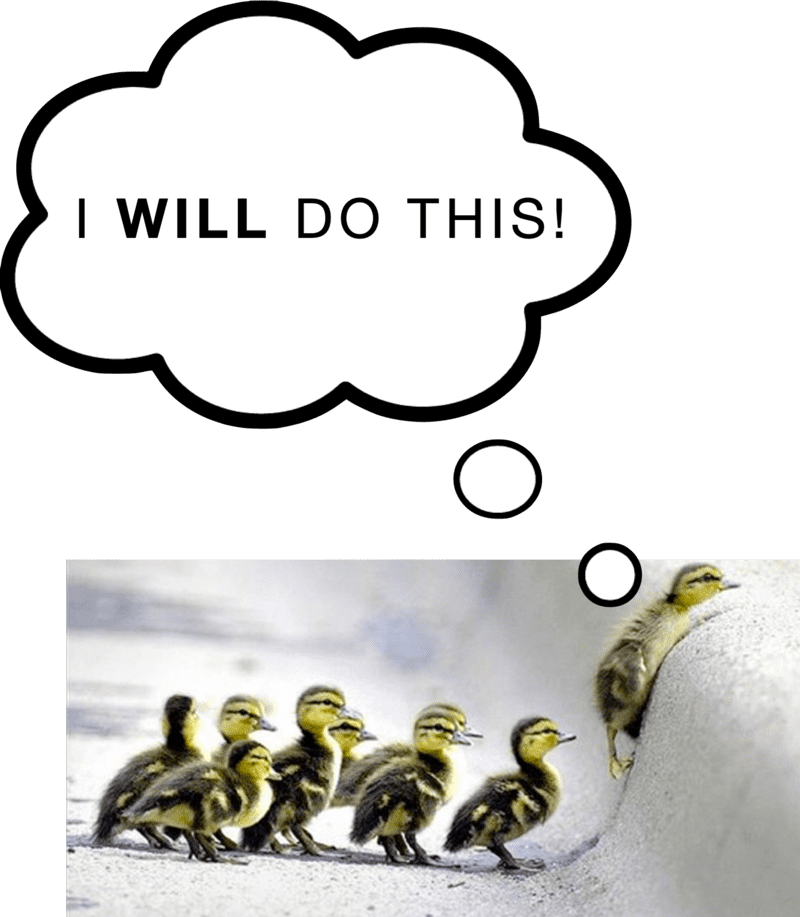
Cognitive skills are the core skills your brain uses to think, read, learn, remember, reason, and to pay attention.
Non-cognitive skills are the attitudes and behaviours that are needed for learning, such as conscientiousness, perseverance, and motivation.
Mind Matters 2018 – A Rosetta Stone for non-cognitive skills – Jan 2015
Self-Regulation plus other EBL skills are developed in these KS2 English lessons:
EBL Skill 8
Independent Learning
Independent learners take responsibility for their own learning. They work at their own pace and are able to effectively plan, monitor and evaluate their own learning.
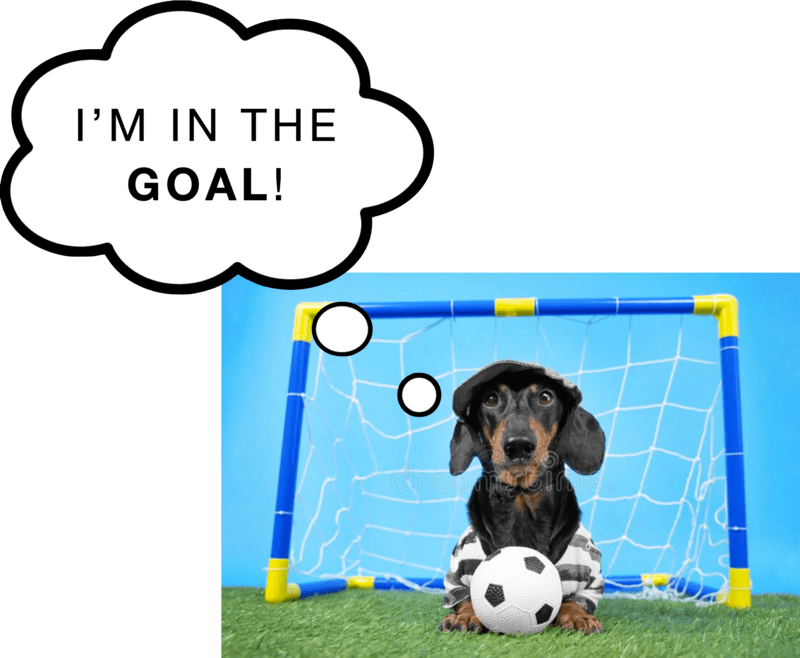
An independent learner can make informed choices, set goals, and make decisions about how to fulfil their learning objectives.
Independent Learning: A Teacher’s Guide – Paul Main – Structural Learning
Independent Learning plus other EBL skills are developed in these KS2 English lessons:
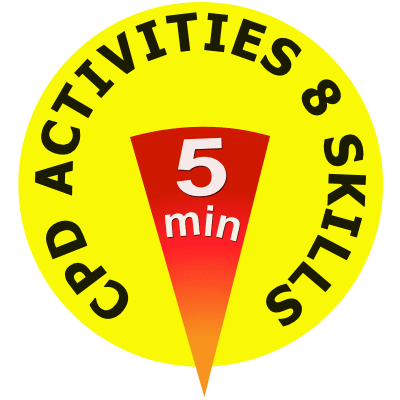
A five-minute teacher CPD activity on one of the 8 EBL skills has been added to the end of over 150 lessons.

CPD activities, on the 8 EBL skills, are embedded across our KS2 English lessons…
teachers and leaders see improving teachers’ practice as a priority…
Independent Review of Teachers’ Professional Development in Schools – gov.uk – May 2021
These lessons also include a 5-minute CPD activity on collaboration.
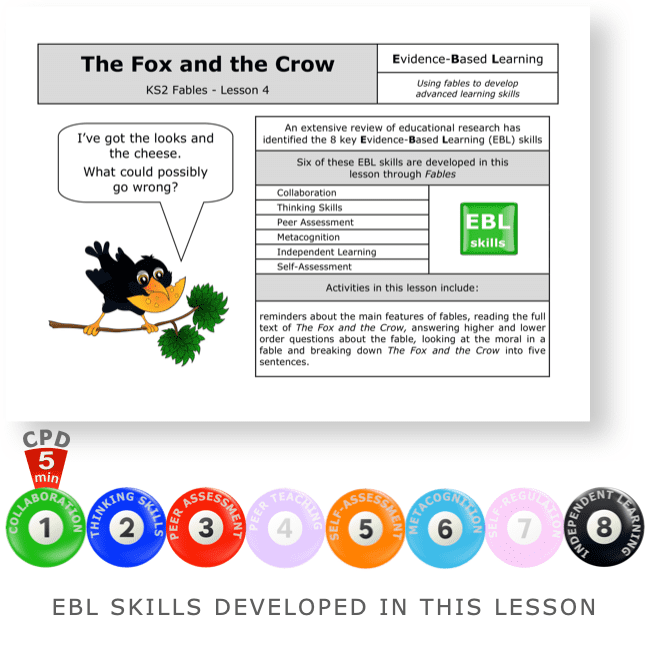
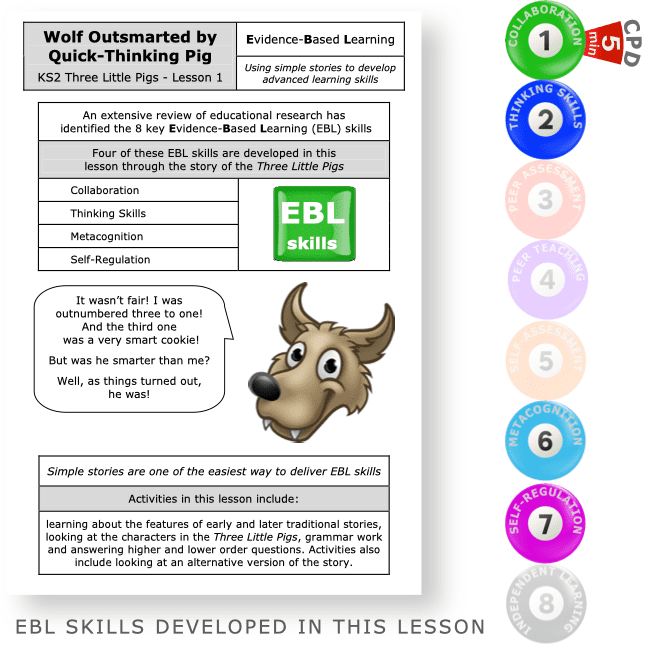
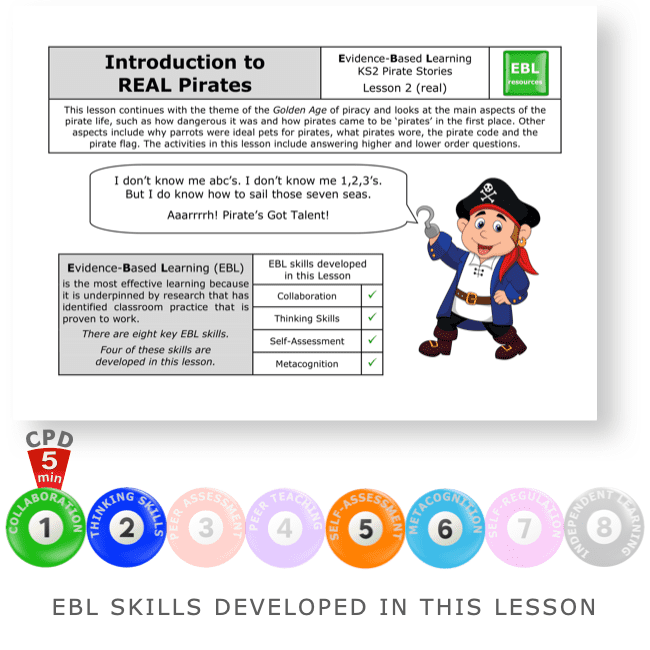
These lessons also include a 5-minute CPD activity on Thinking Skills.
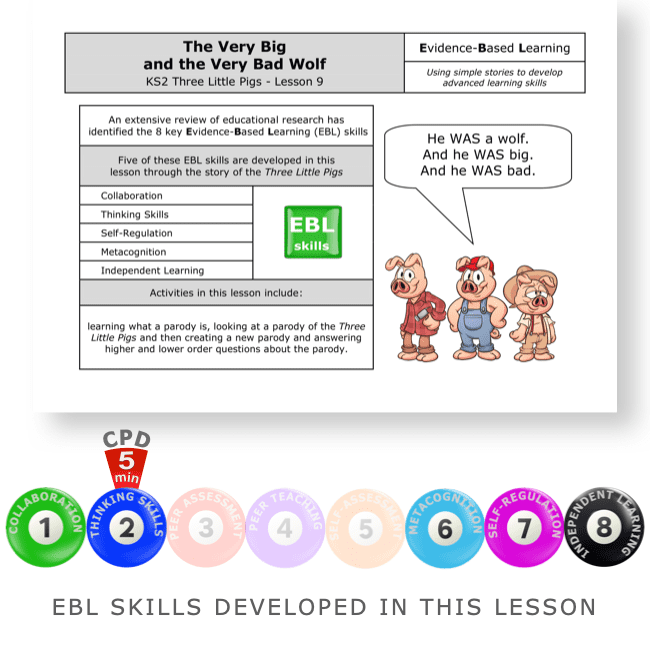
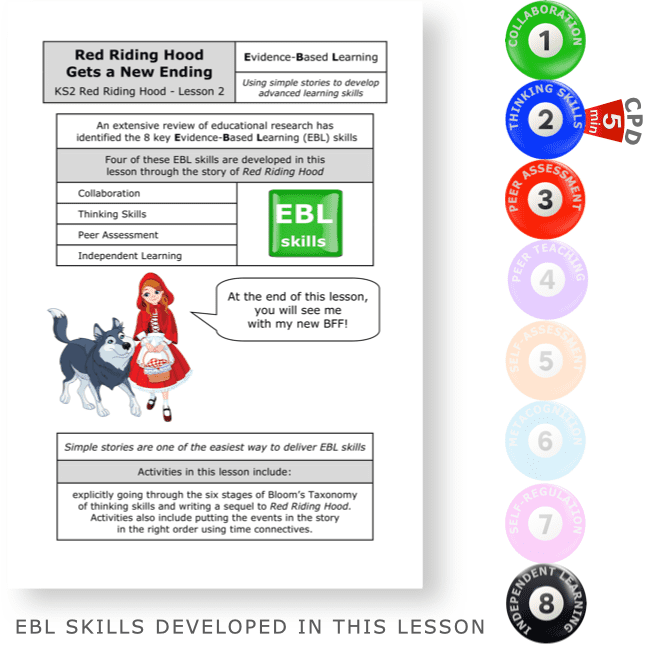
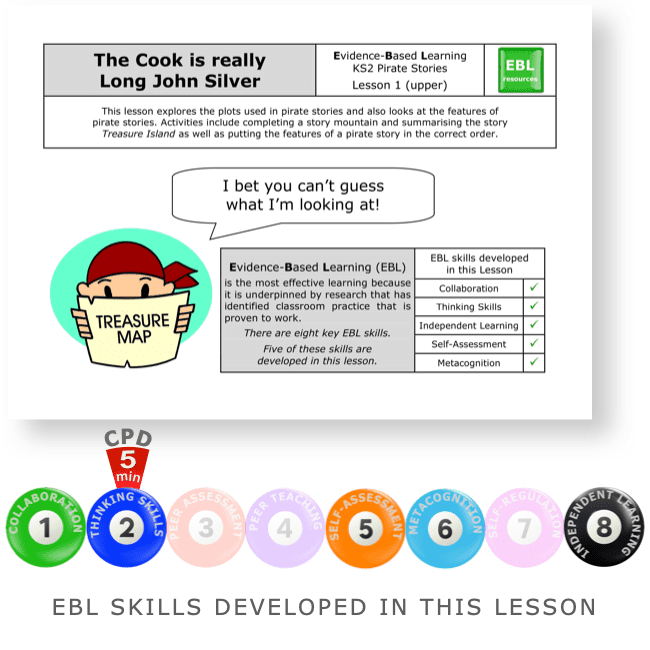
These lessons also include a 5-minute CPD activity on Peer Assessment.
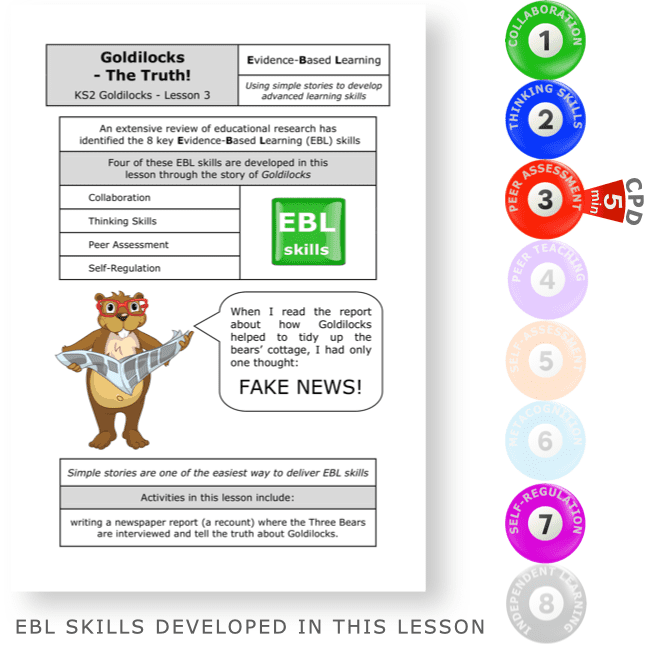
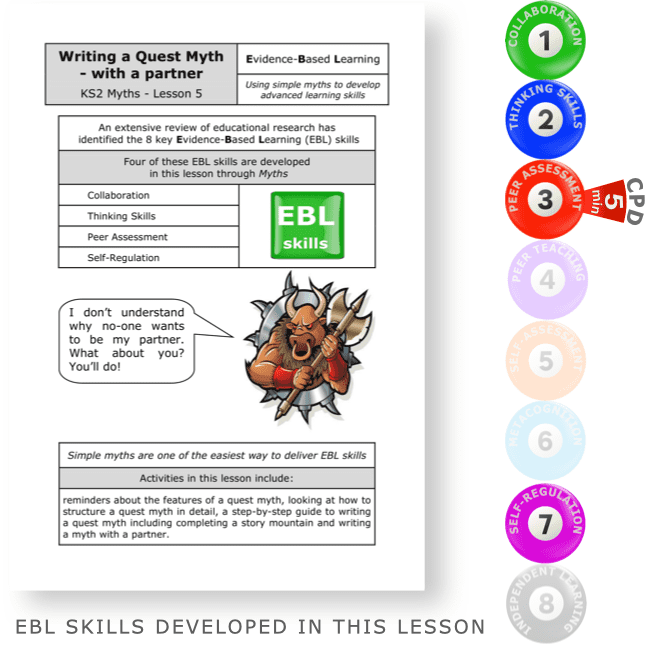
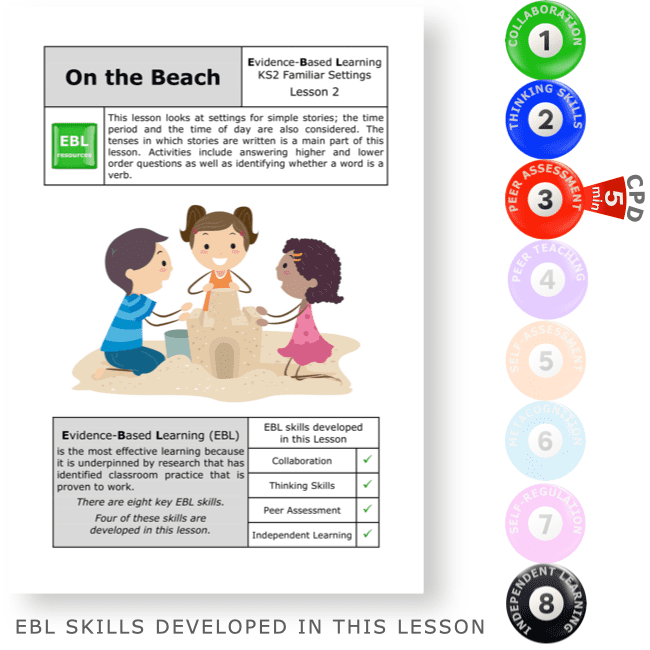
These lessons also include a 5-minute CPD activity on Peer Teaching.
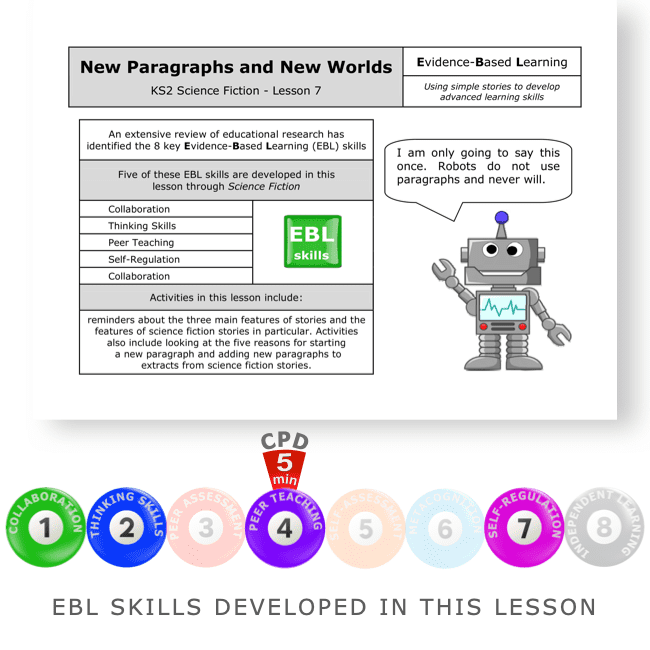
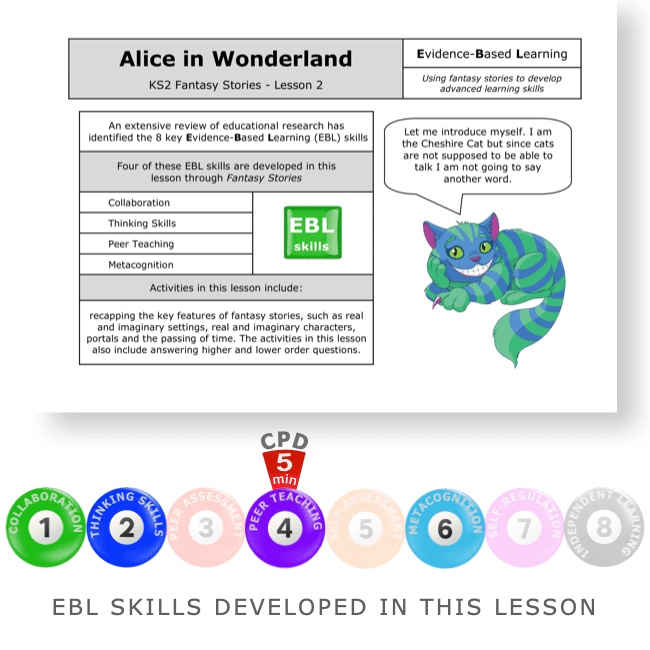
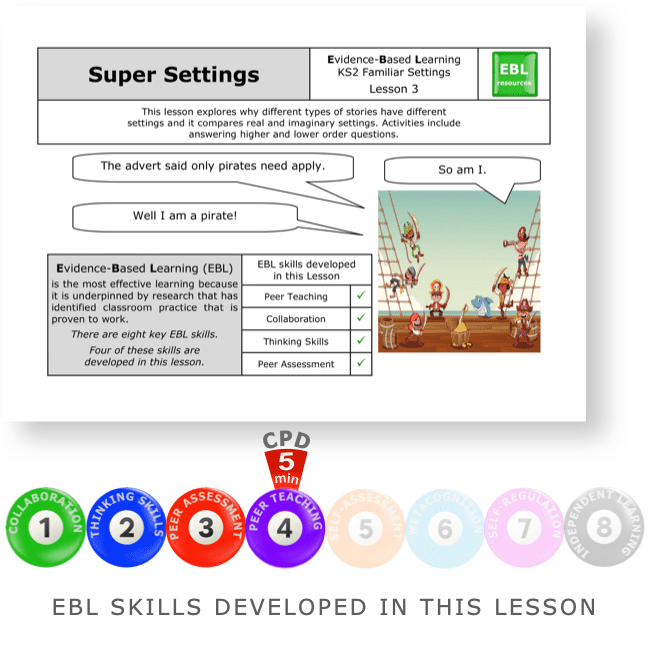
These lessons also include a 5-minute CPD activity on Self-Assessment.
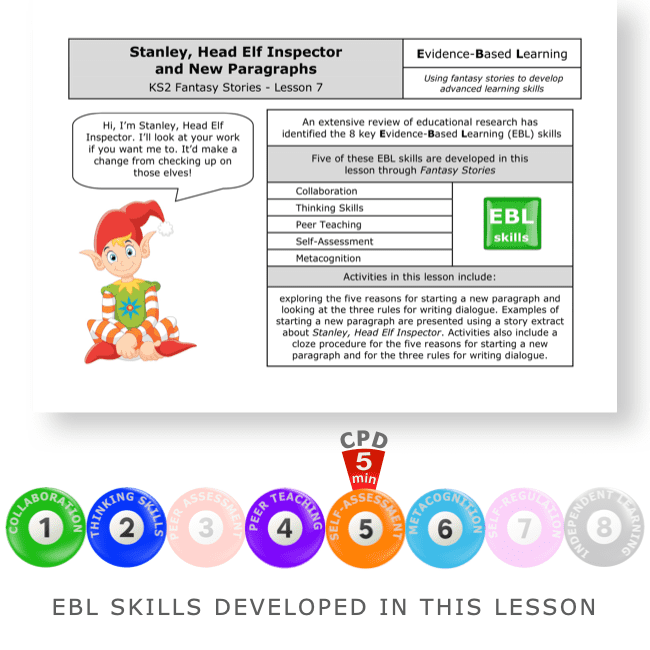
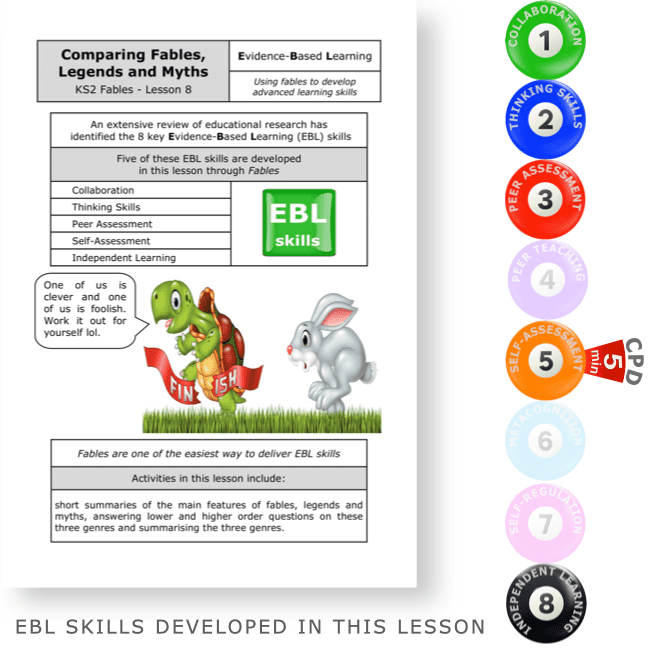
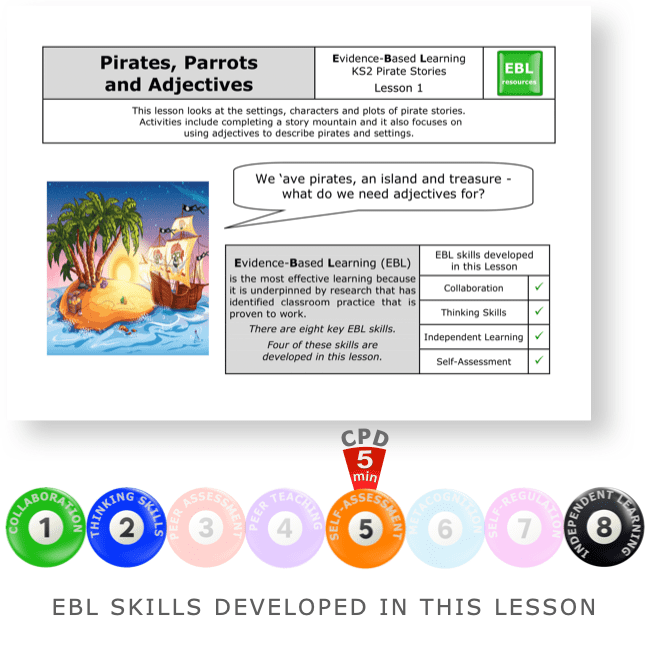
These lessons also include a 5-minute CPD activity on Metacognition.
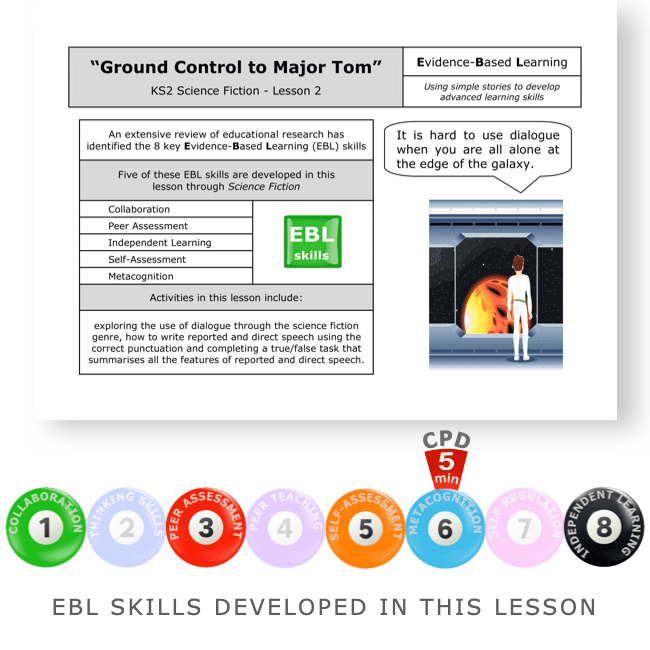
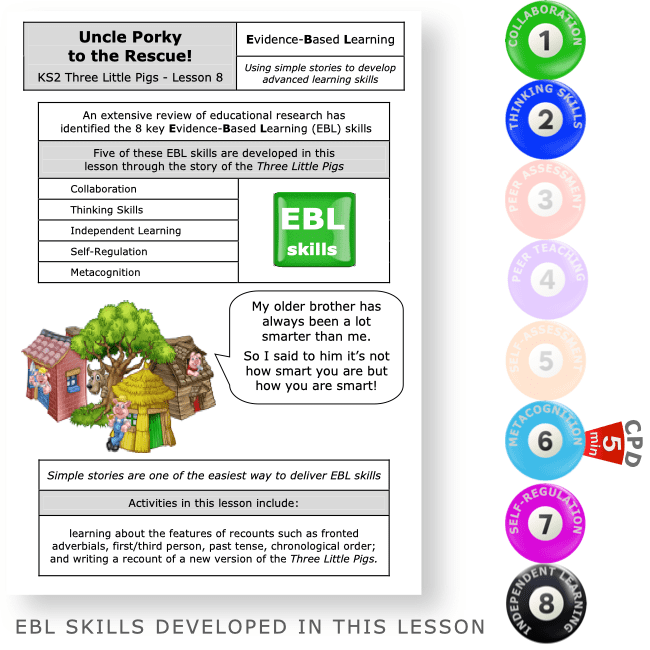
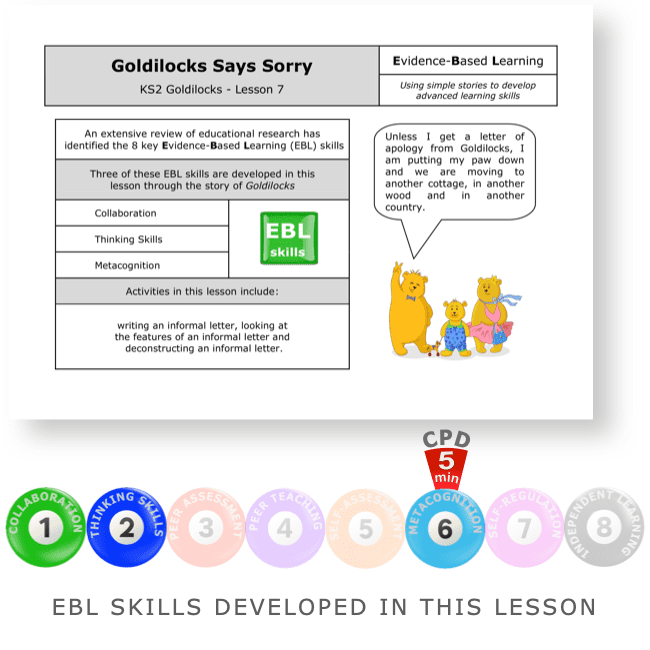
These lessons also include a 5-minute CPD activity on Self-Regulation.
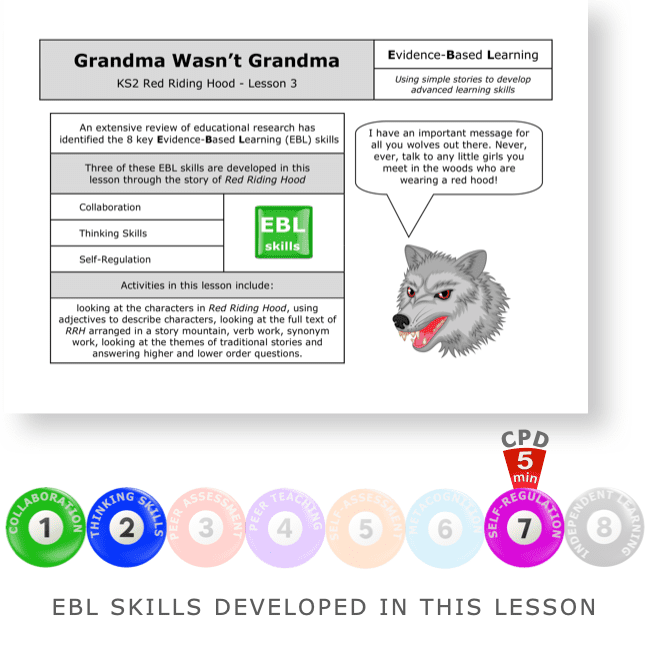
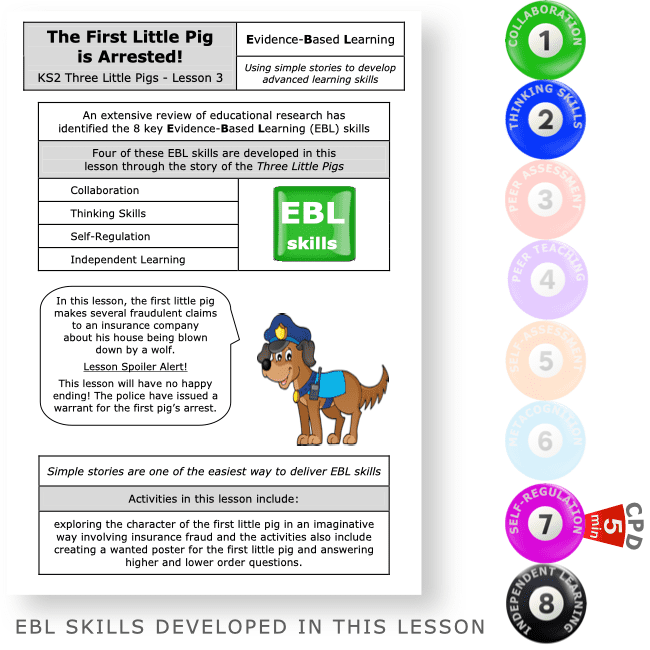
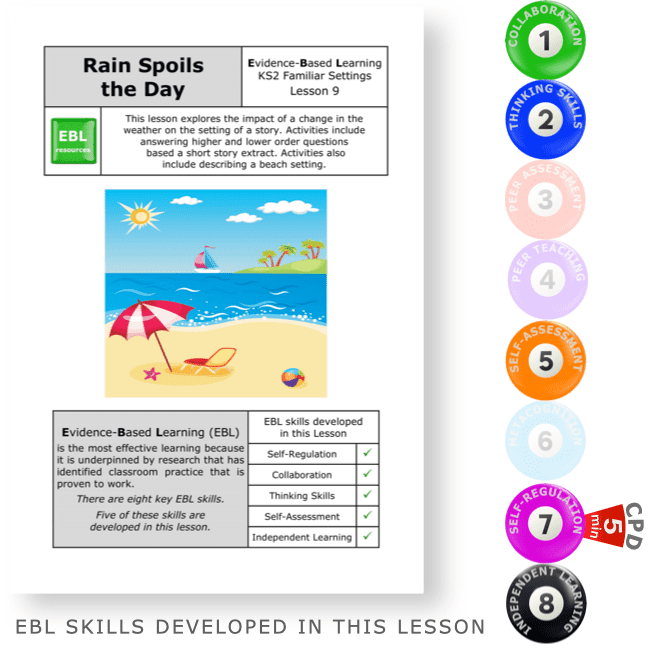
These lessons also include a 5-minute CPD activity on Independent Learning.
